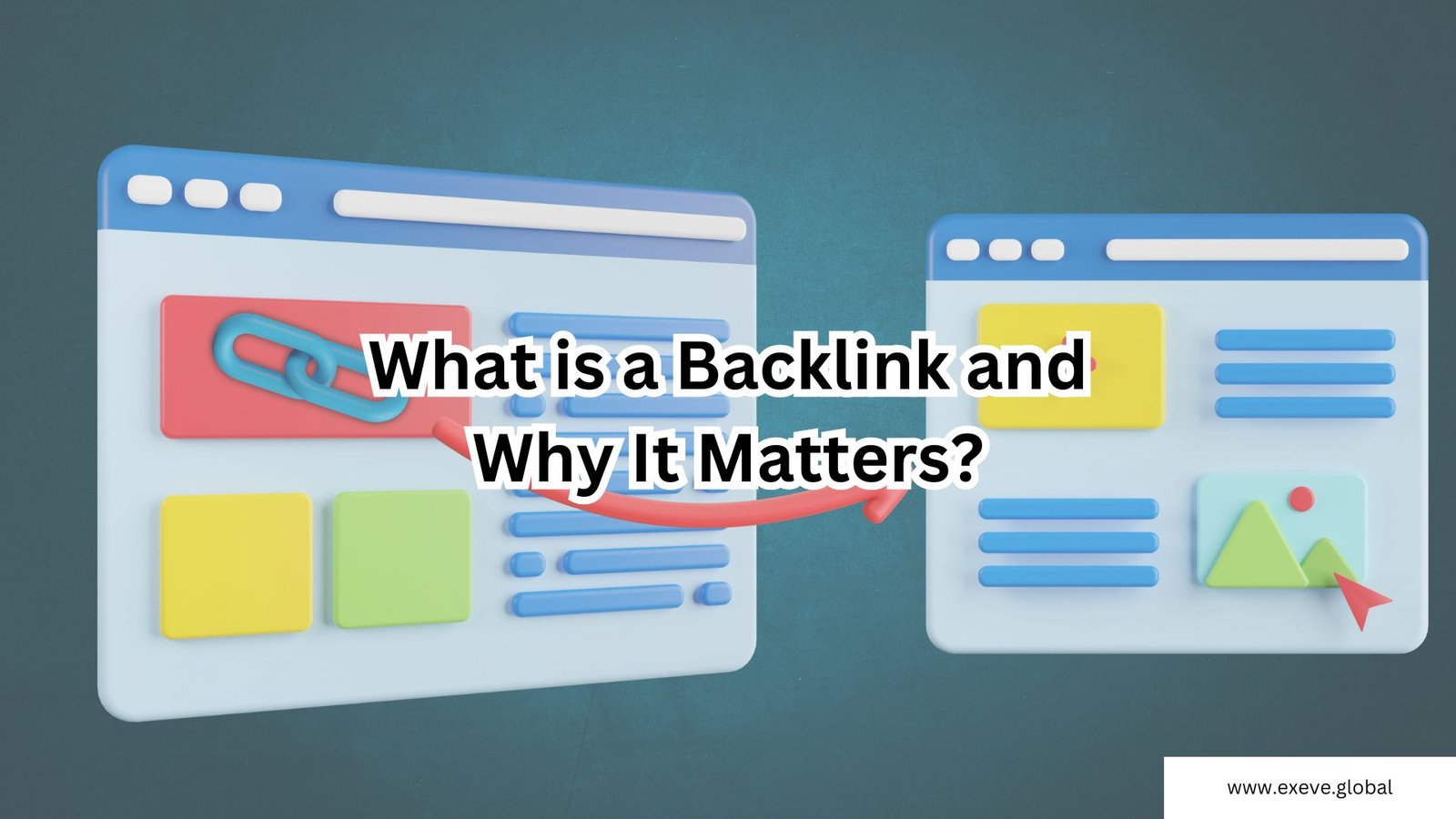
Backlinks are a vital part of SEO, helping websites rank higher on search engines like Google. They act as votes of confidence from one site to another, telling search engines that your content is trustworthy and valuable. Understanding backlinks and their importance can significantly improve your site’s visibility and authority.
Overview
- Backlinks are links from one website to another and are crucial for SEO.
- They help improve search engine rankings by acting as endorsements of your content.
- There are different types of backlinks, including DoFollow and NoFollow links.
- Quality backlinks from reputable sites are more valuable than a high quantity of low-quality links.
- Avoid common backlinking mistakes like buying links or using low-quality sites.
Table of contents
- Overview
- What is a Backlink?
- Why Backlinks Matter for SEO
- How Search Engines Use Backlinks
- Types of Backlinks
- How to Build High-Quality Backlinks
- Common Backlinking Mistakes to Avoid
- Tools for Backlink Analysis
- The Role of Anchor Text in Backlinking
- Ethical Link Building Strategies
- The Future of Backlinking
- Conclusion
What is a Backlink?
A backlink is a link from one website to another. It’s like a vote of confidence, signaling to search engines that your content is valuable. These links are also known as inbound or incoming links. Backlinks are crucial for SEO because they help search engines determine the credibility and relevance of your site.
Why Backlinks Matter for SEO
Backlinks stand as critical markers for SEO, signaling to search engines the value and credibility of your content. Let’s explore the advantages of backlinking.
How Search Engines Use Backlinks
Google’s PageRank Algorithm
Search engines like Google use backlinks to find and index content on the web. They use programs called crawlers or bots to follow links from one page to another. This helps them discover new content and add it to their index. Backlinks are a key factor in Google’s PageRank algorithm, which was one of the first methods to rank web pages based on their importance. The more backlinks a page has, the higher it is likely to rank in search results.
Trust and Relevance
Backlinks also help search engines determine the trustworthiness and relevance of a page. When a reputable site links to your content, it acts like a vote of confidence. Search engines assume that the link is intentional and that the content is valuable. This can boost your site’s credibility and improve its ranking. Combining yellow pages and SEO boosts online visibility for local businesses. Reviews, content, and listings play key roles in enhancing SEO and credibility. Future trends emphasize digital marketing strategies.
Quality vs. Quantity
Not all backlinks are created equal. Search engines look at the quality of the backlinks rather than just the number. A few high-quality backlinks from reputable sites can be more beneficial than many low-quality ones. It’s important to focus on earning backlinks from sites that are relevant to your content and have a good reputation. This helps in mastering user-centric design, SEO integration, and algorithm allies for search success.
Types of Backlinks
Understanding the different types of backlinks is crucial for a successful SEO strategy. Each type has unique characteristics and ways to acquire them, which can significantly boost your site’s ranking and credibility.
DoFollow vs. NoFollow Links
Backlinks can be categorized into DoFollow and NoFollow links. DoFollow links pass on SEO value from the linking site to the linked site, helping improve search engine rankings. On the other hand, NoFollow links do not pass on SEO value but can still drive traffic and increase visibility.
Editorial Backlinks
Editorial backlinks are links placed within high-quality, relevant content. These are often considered the most valuable because they come from trusted sources and are usually earned through merit. For example, a news article mentioning your business and linking to your site would be an editorial backlink.
Guest Post Backlinks
Guest post backlinks are acquired by writing articles for other websites in your industry. These articles include links back to your site, helping to drive traffic and improve your SEO. This method not only builds backlinks but also establishes you as an authority in your field.
Investing in SEO is crucial for online visibility and business growth. SEO enhances website visibility, attracts organic traffic, and ensures competitive advantage.
For more insights and professional SEO services, visit EXEVE.
How to Build High-Quality Backlinks
Building high-quality backlinks is essential for improving your website’s SEO. Here are some effective strategies to help you get started:
Common Backlinking Mistakes to Avoid
Buying Links
Purchasing backlinks might seem like a quick way to boost your site’s ranking, but it can backfire. Search engines like Google can penalize your site for using paid links, which can harm your search engine rankings. Always remember to prefer quality over quantity when it comes to backlinks.
Using Low-Quality Sites
Not all backlinks benefit your website. Links from spammy or irrelevant sites can lead to penalties. It’s crucial to focus on acquiring high-quality backlinks from reputable sources. Simple internal linking mistakes can seriously damage your SEO efforts.
Ignoring Relevance
Backlinks should come from sites related to your niche. If your links are from unrelated sites, search engines may view them as manipulative. Ensure your backlinks are relevant to your content to build site authority effectively.

While growing your good backlinks over time should help your website build authority, it’s crucial to know that Google specifically calls out bad link building practices in their Webmaster Guidelines, and can heavily penalize websites that engage in forbidden link building practices.
For more tips on ethical link-building strategies, visit EXEVE.
Tools for Backlink Analysis
Analyzing backlinks is a crucial part of SEO. It helps you understand the quality and quantity of backlinks to your website. There are several tools available for this purpose, including Ahrefs, Moz, and SEMrush. These tools provide insights into the number of backlinks, the domain authority of the linking websites, and the anchor text used in the backlinks.
Google Search Console
Google Search Console is a free tool that helps you monitor, maintain, and troubleshoot your site’s presence in Google Search results. It provides data on your backlinks, helping you understand which sites link to yours and the anchor text used. This tool is essential for anyone looking to improve their site’s SEO.
Ahrefs
Ahrefs is one of the most popular backlink analysis tools. It offers a comprehensive suite of features, including a site explorer, content explorer, and keyword explorer. Ahrefs provides detailed information on your backlinks, including the number of backlinks, referring domains, and the quality of the linking sites. It’s a must-have tool for serious SEO professionals.
SEMrush
SEMrush is another powerful tool for backlink analysis. It offers a wide range of features, including a backlink audit tool, which helps you identify toxic backlinks that could harm your site’s SEO. SEMrush also provides data on your competitors’ backlinks, allowing you to find new link-building opportunities. It’s a versatile tool that can help you improve your site’s SEO in many ways.
Using the right tools for backlink analysis can make a significant difference in your SEO efforts. They provide valuable insights that can help you build a stronger backlink profile and improve your site’s search engine rankings.
For those looking to take their SEO to the next level, consider partnering with EXEVE. Visit EXEVE to learn more.
The Role of Anchor Text in Backlinking
What is Anchor Text?
Anchor text is the clickable part of a text that covers a link to another page on the Internet. It usually appears as blue and underlined text. Anchor text is often the unsung hero of link building. It plays a major role in determining the value of a link and its impact on search engine rankings.
Best Practices for Anchor Text
When creating anchor text, it’s important to use natural language that fits nicely in the website copy. Avoid keyword-stuffed anchor texts as they can look spammy to Google and other search engines. Instead, opt for natural anchor text that offers relevant and useful content. Here are some best practices:
- Use descriptive text that gives a preview of what the linked page is about.
- Keep it concise and relevant to the content.
- Avoid using the same anchor text repeatedly.
Avoiding Over-Optimization
Over-optimization of anchor text can lead to penalties from search engines. This happens when you use too many keyword-optimized anchor texts, making it look like you’re trying to manipulate search engine rankings. To avoid this, mix up your anchor texts and use variations that still make sense in the context of the content.
Remember, the goal is to create a natural and useful linking experience for users.
For more tips on ethical link building strategies, visit EXEVE.
Ethical Link Building Strategies
White Hat vs. Black Hat SEO
Ethical link building focuses on enhancing user experience and providing real value, which is why search engine algorithms additionally encourage it. White hat SEO involves techniques that follow search engine guidelines, while black hat SEO uses deceptive practices. Ethical link-building often yields higher-quality backlinks from authoritative and relevant websites, which carry more weight in search engine result pages than multiple low-quality links.
Building Relationships
Building backlinks ethically involves creating high-quality content that naturally attracts backlinks, engaging in guest blogging, and participating in relevant online communities. It’s important to focus on earning links from reputable sites within your industry to ensure the backlinks contribute positively to your SEO efforts.
Creating Shareable Content
Creating content worth sharing is a cornerstone of ethical link building. When you produce valuable, informative, and engaging content, other websites are more likely to link back to you. This not only helps in building site authority but also drives organic traffic to your site.
Ethical practices win: Build backlinks with integrity through valuable content and active community participation, securing sustainable SEO achievements and maintaining your site’s credibility.
For more insights and tools to boost your website’s authority and visibility, visit EXEVE.
The Future of Backlinking
Evolving Search Algorithms
Search engines are always changing, and their algorithms are getting smarter. Adopting a holistic and quality-focused approach in link acquisition and broader SEO strategies will likely yield the best results in this changing landscape. As algorithms evolve, the focus will shift more towards the quality and relevance of backlinks rather than just the quantity.
The Role of AI
Artificial Intelligence (AI) is playing a bigger role in SEO. AI can help in identifying the most relevant and high-quality backlinks, making it easier to build links in the future. Set the flywheel in motion with SEMrush’s link building tool. AI will also help in understanding user intent better, which will be crucial for creating content that attracts valuable backlinks.
Sustainable Link Building Practices
In the future, the emphasis will be on sustainable link building practices. This means focusing on ethical SEO practices and building relationships rather than just acquiring links. Explore key trends shaping the future of link building in 2025, focusing on quality, strategic integration, and ethical SEO practices. Sustainable practices will ensure that your backlink profile remains strong and effective in the long run.
Building a strong backlink profile isn’t something that happens overnight. It’s a strategic, ongoing process that requires patience, persistence, and smart networking.
For more insights and tools to help you navigate the future of backlinking, visit EXEVE.
Conclusion
In summary, backlinks are a key part of SEO that can greatly impact your website’s success. They act like votes of confidence from other websites, telling search engines that your content is valuable and trustworthy. By building a strong network of high-quality backlinks, you can improve your site’s visibility and ranking on search engine results pages. Remember, the quality of backlinks is more important than the quantity. Focus on getting links from reputable sites, and you’ll see better results in your SEO efforts.

